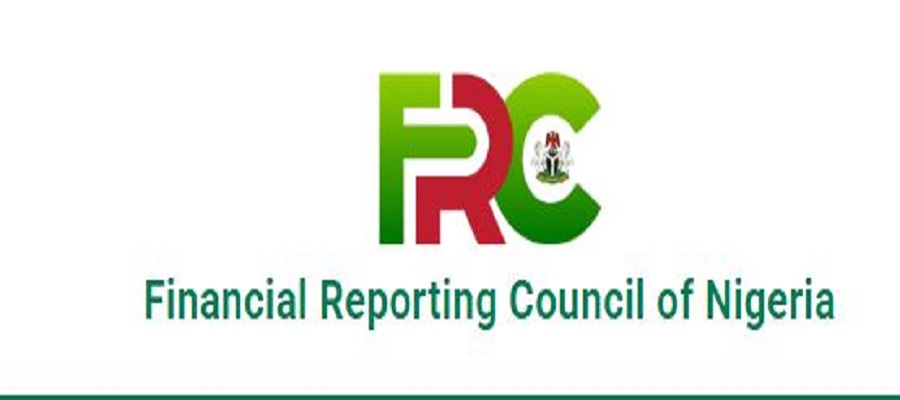General News
Nigeria ends 2018 on a cautious note; 2019 elections in focus

By Lukman Otunuga,
It has been another monumental year for the Nigerian economy which continued to display resilience against domestic and external headwinds.
The healthy combination of easing inflationary pressures, foreign exchange stability and rising commodity prices initially stabilized Nigeria’s macro fundamentals. With domestic conditions clearly improving and foreign investor appetite increasing, expectations were elevated over the Central Bank of Nigeria (CBN) cutting interest rates to stimulate further growth. The outlook for Nigeria looked highly encouraging up until mid Q2 2018 when economic growth slowed for the first time since the end of the recession. The deceleration in growth acted as a critical wakeup call to speed up efforts in diversifying away from oil reliance.
However, sentiment was dented further by the repeated delay of the 2018 budget which was finally passed in June 2018. Although Nigeria managed to hold its ground during the first half of 2018, it must be kept in mind that the nation found itself vulnerable to external shocks – namely an appreciating Dollar and oil price volatility. An appreciating Dollar, global trade tensions and prospects of higher US interest rates punished many emerging markets in 2018 with Nigeria falling into the category. Although the Naira witnessed stability despite an appreciating Dollar, this came at a heavy price to the CBN in the form of falling external reserves.
Global trade tensions presented a significant risk to Nigeria, especially when considering how the United States and China remain its biggest trading partners. With a trade war threatening global economic growth and demand for commodities, this presented challenges to Nigeria which remained heavily depended on earnings from oil exports. While there was scope for the CBN to cut interest rates to boost growth, this window of opportunity was missed when inflationary pressures returned.
Focusing on macro fundamentals, the picture looks somewhat encouraging with GDP expected to rise 2% in 2018. Signs of Non-Oil sectors contributing to growth will be a welcome development that highlights how Nigeria remains on a quest to break away from oil reliance. With Nigeria’s economic resilience potentially stimulating investor risk appetite, the Nigerian Stock Exchange has the opportunity to rebound in 2019. Although manufacturing production decreased 1.7% in September, a rebound could be in the cards as increased government spending ahead of the presidential elections boosts economic growth.
In regards to CBN policy, falling oil prices are seen weighing on the Naira’s peg against the Dollar on the official exchange. This may complicate the CBN’s effort to defend the Naira on the parallel markets in 2019. While a weaker Dollar could limit capital outflows, falling oil prices are poised to shave government revenues.
Focusing on oil prices, the outlook remains tilted to the downside amid oversupply fears and concerns over weaker oil demand. With markets struggling to find signs of the oil market rebalancing following OPEC and Russia’s deal to cut production by 1.2 million barrels per day and global growth fears fuelling concerns over falling demand, oil prices remain fundamentally bearish. Severely depressed oil prices have raised concerns over Nigeria’s ability to move forward with the 2019 budget which pegged oil prices at $60 per barrel. With falling oil prices eroding government revenues, Nigeria’s Excess Crude Account (ECA), which has already depleted by roughly 73% in three weeks, is seen falling further.
Although the short-term outlook paints a gloomy picture, as we enter the New Year there is still some light at the end of the tunnel. With diversification in motion, government spending expected to increase and infrastructure developments in the pipeline, the longer-term outlook remains bright.
General News
NCS to Launch Electronic System for Cash Declarations at Airports

Nigeria Customs Service (NCS) is set to introduce an electronic declaration system to streamline and enhance compliance for travelers carrying cash into or out of Nigeria.

Speaking in an interview with the News Agency of Nigeria (NAN) in Abuja, Abdullahi Maiwada, NCS spokesperson, emphasized that the initiative aligns with efforts to strengthen Nigeria’s anti-money laundering framework and reinforce financial regulations.
“The Nigeria Customs Service (NCS) has announced the deployment of an Electronic-Currency (E-Currency) declaration form as part of its anti-money laundering measures for travelers carrying cash into and out of Nigeria,” NAN reported. The system will require travelers carrying amounts exceeding the legal threshold to declare them before arrival or departure.
Maiwada further explained the process, stating, “We have developed a system where, even before leaving your point of origin, you can scan a QR code, access the form, fill it out, and we will be able to see it from here.”
He noted that the initiative, set for rollout soon, will enhance monitoring and facilitate information sharing with relevant authorities.
Under the Anti-Money Laundering (Prevention and Prohibition) Act 2022 and the NCS Act 2023, travelers carrying over $10,000 (about N15.4 million) or its equivalent in negotiable instruments must declare the funds to Customs authorities.
To boost awareness, the NCS is working with airline operators to inform travelers through onboard announcements and plans to reinstate signage at airports and border points in English and French.
The move comes as part of broader efforts to tighten financial controls following a recent case at the Murtala Muhammed International Airport (MMIA), where Customs officials seized $578,000 from a passenger attempting to evade currency declaration regulations.
General News
Aquaterra Energy Secures Multi-million-dollar well Intervention Contract with Intrepid Energy in Nigeria

Aquaterra Energy, a leader in offshore engineering solutions, has secured a multi-million-dollar, multi-year contract with Intrepid Energy Limited (IEL) to deliver a bespoke subsea well intervention equipment package for a project in Nigeria.

Aquaterra Energy’s turnkey well access package will enable IEL to conduct intervention operations across multiple mature oil wells in the region, supporting enhanced reservoir production.
The contract includes the supply of a complete seabed-to-surface intervention system and package, spanning from the subsea tree to surface intervention equipment.
Key components include Aquaterra Energy’s TRT tieback tooling, which provides production bore and annular access, a lightweight well pressure control system, and an ISO 13628-7 qualified open water intervention riser with an integrated tensioning system. In addition to equipment provision, Aquaterra Energy will also deliver ongoing offshore engineering support throughout the project.
The 7- 3/8” lightweight well access solution, has been specifically engineered for deployment from jack-ups and lift boats. This innovative approach offers a cost-effective and operationally efficient alternative to floating vessels, reducing intervention costs while maintaining high safety and performance standards.
Andrew McDowell, Delivery Director at Aquaterra Energy comments: “Our expertise in offshore engineering allows us to develop tailored intervention solutions that address the operational challenges of subsea well access.
This system has been engineered for efficiency, ease of deployment, and safety, helping IEL optimise intervention activities across Nigeria while reducing costs. By delivering a complete, integrated package, we are simplifying complex operations and enabling operators to maximise production potential.”
Engr Seun Alonge, CEO at Intrepid Energy Limited adds: “Working with Aquaterra Energy marks a significant step forward for our intervention operations in Nigeria. Their specialised technology enhances our ability to execute intervention programmes efficiently, maximising performance across our assets.
By combining Aquaterra’s technical expertise with our deep understanding of the local operating environment, we’re confident this collaboration will enhance production outcomes and create lasting value for our operations in the region.”
The project is set to support intervention operations over multiple years, with Aquaterra Energy providing ongoing technical expertise, with a dedicated team of engineers providing ongoing service support throughout the project.
George Morrison, CEO at Aquaterra Energy: “Delivering reliable and efficient well access solutions for shallow water subsea operations is central to how we support offshore operators.
This collaboration with IEL reinforces our commitment to providing cutting-edge engineering solutions that enhance efficiency and reduce operational costs. With West Africa playing an important role in the global energy sector, we’re proud to continue supporting its offshore industry with our expertise and innovative technologies.”
General News
FG Halts Controversial FRC Dues amid Industry Outcry

Federal government has temporarily suspended the controversial annual dues imposed on public interest enterprises by the Financial Reporting Council (FRC) after fierce opposition from businesses.

Jumoke Oduwole, minister, Industry, Trade, and Investment, announced the decision during a Ministerial Consultative Meeting in Abuja on Wednesday.
The move follows mounting pressure from private sector groups, including the Nigeria Employers’ Consultative Association (NECA) and the Manufacturers Association of Nigeria (MAN), who slammed the Financial Reporting Council (Amendment) Act 2023 for burdening companies with excessive fees.
The Act mandates cumulative annual charges for non-listed entities and imposes a harsh 10% monthly penalty on unpaid dues, compounding until full payment, a provision that sparked widespread backlash.
At the meeting, major industry players like NECA, MAN, the Nigerian Association of Chambers of Commerce (NACCIMA), oil producers, and telecom operators warned that the fees would cripple businesses already struggling in a tough economy.
Oduwole clarified the suspension, stating, “The government has decided to direct the Financial Reporting Council to pause in the implementation of the new annual dues. You know that I am a lawyer, and a suspension request by the organised private sector would be in contravention of legislation duly passed by the National Assembly. A pause is an administrative process simply to review, in line with what we discussed today.”
She assured stakeholders that the halt would last no longer than 60 days, with a technical working group—including FRC officials and private sector representatives—set up to reassess the policy.
“We are a listening administration. The private sector has requested a range from three months to an indefinite suspension. We are not going to do that. So, at the most, 60 days is in my estimate. We are going to set up a technical working group comprised of the FRC and the organised private sector who have formally written in, and this will be reviewed,” Oduwole emphasized.

 News3 days ago
News3 days agoCourt Throws Out Falana’s Fraud Case against Ekeh, Zinox Boss and Others

 E-Financial3 days ago
E-Financial3 days agoHeritage Bank Depositors Seek National Assembly’s Help to Recover Trapped Funds

 Telecom2 days ago
Telecom2 days agoAgain, Labour Fumes, Threatens Shutdown of Telcos over Non-Implementation of 15 Percent Tariff Reduction

 Telecom3 days ago
Telecom3 days agoNokia Unwraps 5G Gateway for Home Internet

 News3 days ago
News3 days agoFG Receives N1Bn Grant from Airtel Africa to Boost 3MTT Programme

 News3 days ago
News3 days agoFG to Halt Solar Panel Imports, Pushes for Local Manufacturing

 E-Business2 days ago
E-Business2 days agoQNET Disassociates From Fraudulent Academy in Abuja, Supports EFCC Arrest

 News2 days ago
News2 days agoNNPC Ready to Go to Capital Market for IPO- CFIO



























